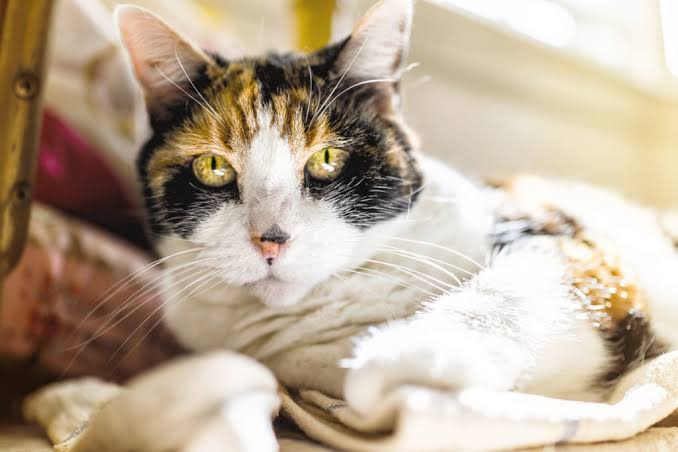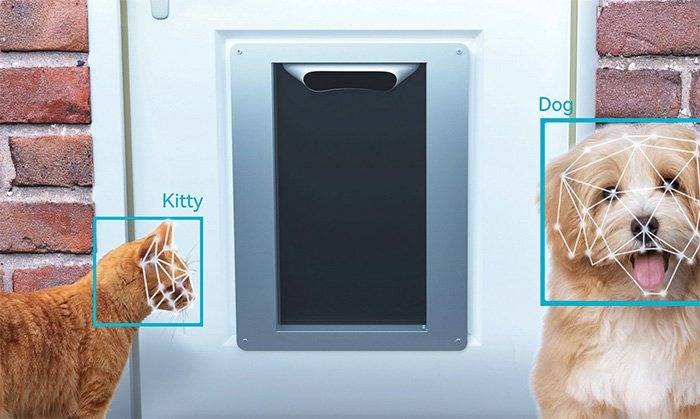
Adopting a Senior Cat: Best Breeds for Calm Companions
Adopting a senior cat can bring immense joy. Several breeds, like Ragdolls and British Shorthairs, are known for their calm temperaments, making them ideal companions. Consider each cat's individual personality alongside breed characteristics. Prepare your home with soft bedding, accessible resources, and quiet spaces. Be patient during the transition, and ensure regular veterinary checkups for your senior companion's well-being. With love and care, you'll provide a deserving cat a loving home in their golden years.
🐶 Pet Star
17 min read · 2, Feb 2025

The Joys of Adopting a Senior Cat:
There's a certain magic to adopting a senior cat. They've often outgrown the kitten crazies and are ready to settle into a comfortable routine. Senior cats tend to be more appreciative of a quiet home and a loving presence. They're often content to spend their days lounging in a sunbeam, purring contentedly, or simply enjoying your company. You'll be giving a deserving cat a second chance at happiness in their golden years, and in return, you'll receive unconditional love and a truly special bond.
Best Breeds for Calm Companions:
While personality is key, some breeds are generally known for their calm and gentle temperaments. Here are a few breeds to consider when looking for a senior cat companion:
- Ragdoll: These gentle giants are known for their docile and affectionate nature. They often go limp when held, hence their name. Ragdolls are typically very laid-back and enjoy spending time with their humans.
- British Shorthair: With their plush fur and round faces, British Shorthairs are undeniably charming. They are known for their calm and dignified demeanor. They are not overly demanding and are happy to simply be near their loved ones.
- Persian: These glamorous felines are known for their sweet and gentle personalities. Persians are typically quiet and enjoy a calm environment. They are affectionate but not overly demanding.
- Birman: Similar to Ragdolls, Birmans are affectionate and gentle cats. They are known for their striking blue eyes and silky fur. Birmans are social cats and enjoy being part of a family.
- Scottish Fold: These unique cats with folded ears have a sweet and gentle disposition. They are playful but not overly energetic, making them a great choice for a calm companion.
- Russian Blue: With their sleek silver-blue coats and emerald green eyes, Russian Blues are strikingly beautiful cats. They are known for their quiet and reserved nature. They are affectionate with their families but can be a bit shy around strangers.
- Exotic Shorthair: Often called the "lazy Persian," Exotic Shorthairs have the sweet and gentle temperament of a Persian but with a shorter, easier-to-groom coat.
Beyond Breed: Considering Individual Personality:
While breed can be a good indicator of temperament, it's important to remember that every cat is an individual. When adopting a senior cat, spend some time with them at the shelter or rescue to get a sense of their personality. Observe their interactions with other cats and with people. A calm and friendly senior cat will likely be relaxed and approachable.
Preparing Your Home for a Senior Cat:
Senior cats may have special needs, so it's important to prepare your home accordingly.
- Soft Bedding: Provide your senior cat with a comfortable and supportive bed, especially if they have arthritis or other joint issues.
- Easy Access to Food and Water: Place food and water bowls in an easily accessible location. Consider raised bowls to make eating more comfortable for older cats.
- Litter Box Considerations: Choose a litter box with low sides for easy entry and exit. Place the litter box in a quiet and accessible location.
- Scratching Posts: Even senior cats need to scratch! Provide a variety of scratching posts to help them maintain their claws.
- Safe and Quiet Spaces: Ensure your senior cat has access to quiet and safe spaces where they can retreat when they need some alone time.
- Gentle Play: While senior cats may not be as energetic as kittens, they still enjoy gentle play. Engage them in short play sessions with their favorite toys.
Health Considerations for Senior Cats:
Senior cats are more prone to certain health issues, so it's important to be aware of these and schedule regular veterinary checkups.
- Arthritis: Arthritis is a common condition in senior cats. Talk to your vet about pain management options.
- Kidney Disease: Kidney disease is another common health issue in older cats. Regular blood tests can help detect kidney problems early.
- Hyperthyroidism: Hyperthyroidism is an overactive thyroid gland that can cause weight loss, increased appetite, and hyperactivity.
- Diabetes: Diabetes can affect senior cats. Symptoms include increased thirst and urination.
- Dental Issues: Dental problems are common in older cats. Regular dental cleanings are essential for maintaining oral health.
Making the Transition Smooth:
Bringing a senior cat into your home is a big change for both of you. Be patient and understanding as your new companion adjusts to their new surroundings.
- Slow Introduction: Introduce your senior cat to other pets in the household gradually.
- Provide a Safe Space: Give your senior cat a quiet and safe space where they can retreat when they feel overwhelmed.
- Be Patient: It may take some time for your senior cat to adjust to their new home. Be patient and offer them lots of love and reassurance.
Q&A Section:
Q1: I work long hours. Is a senior cat a good choice for me?
Ans: Senior cats are often a good choice for people with busy lifestyles, as they tend to be less demanding than kittens. However, they still need attention and affection, so make sure you can dedicate some quality time to your senior companion.
Q2: My apartment is quite small. Is that a problem for a senior cat?
Ans: A small apartment can be perfectly fine for a senior cat, as long as you provide them with a comfortable bed, a litter box, and access to food and water.
Q3: I have young children. Is it safe to adopt a senior cat?
Ans: It depends on the individual cat and the children. Some senior cats are very tolerant of children, while others may prefer a quieter environment. Supervise interactions between children and cats, especially in the early stages.
Q4: How can I tell if a senior cat is healthy?
Ans: A vet can perform a thorough examination to assess the health of a senior cat. Look for signs of good health, such as clear eyes, a healthy coat, and a good appetite.
Q5: What are the costs associated with adopting a senior cat?
Ans: The costs associated with adopting a senior cat can vary. You'll need to consider the adoption fee, as well as the costs of food, litter, veterinary care, and other supplies.
Similar Articles
Find more relatable content in similar Articles

How Climate Change Affects Wild and Domestic Animals...
Climate change is dramatically.. Read More

Smart Homes for Pets: Automated Feeders, Doors, and Mo..
As smart home technology advan.. Read More

How Pets Strengthen Family Bonds...
Pets are more than just compan.. Read More

Sustainable Pet Products: What to Look for in 2025...
As sustainability becomes a ce.. Read More
Explore Other Categories
© 2024 Copyrights by rPets. All Rights Reserved.